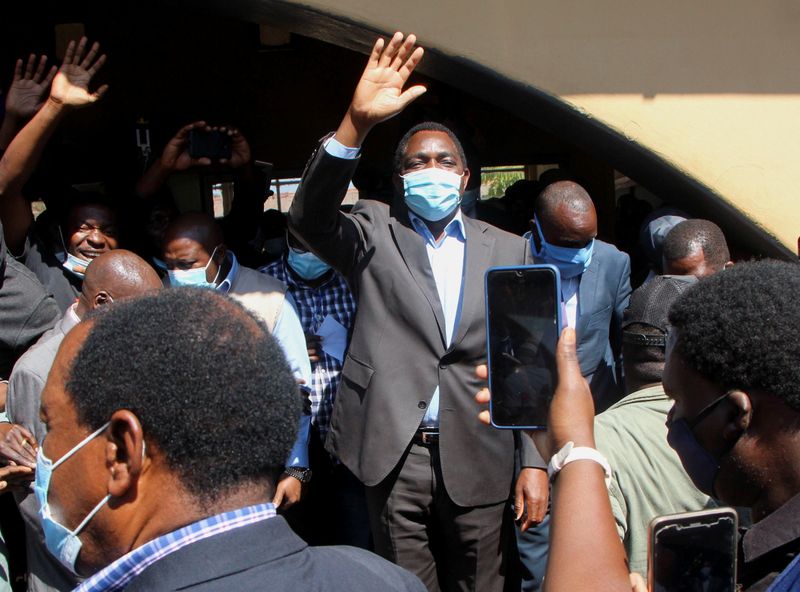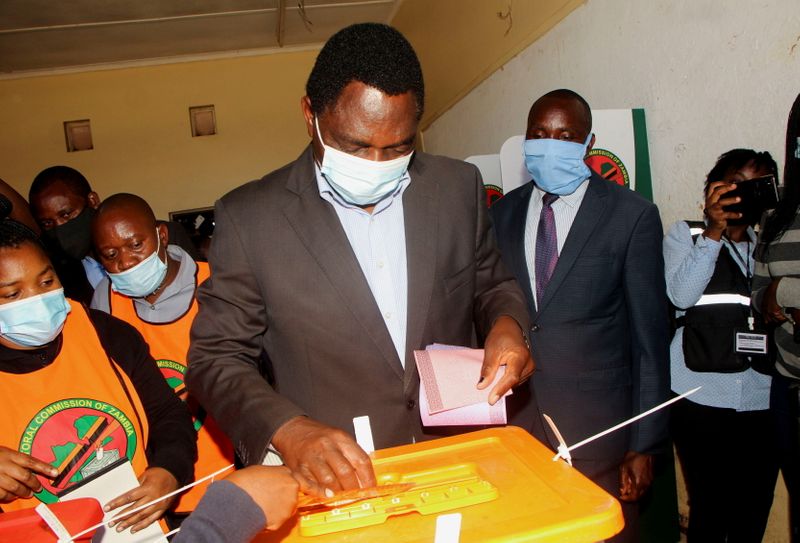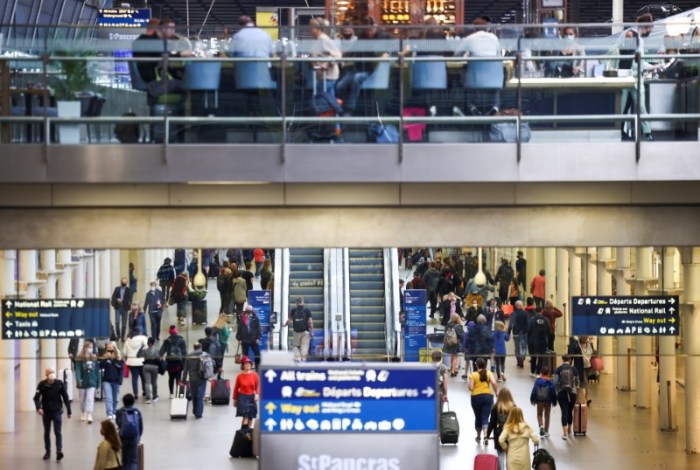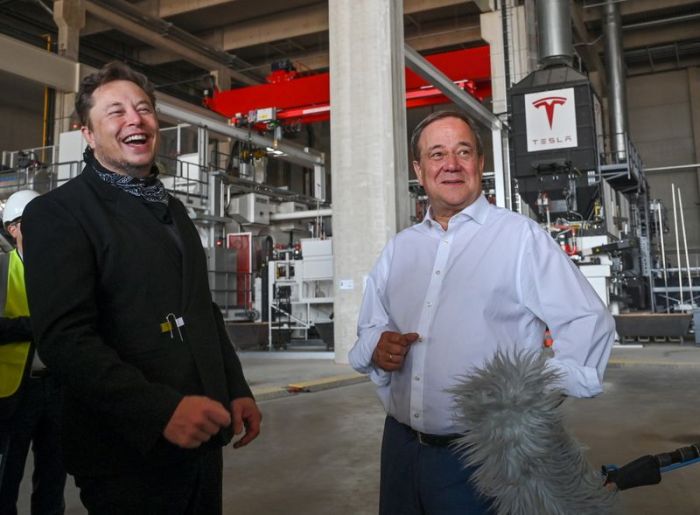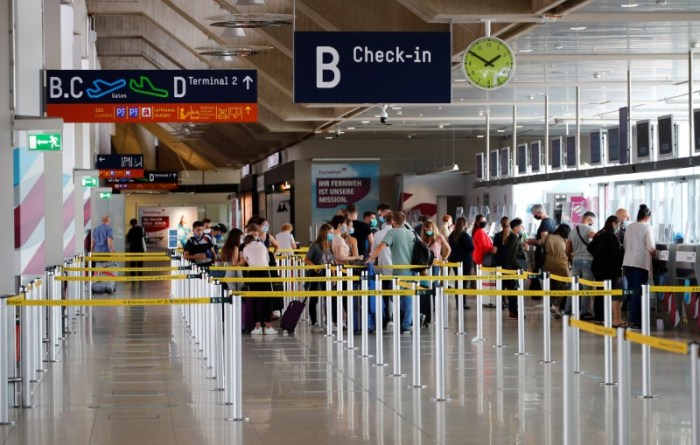By Chris Mfula
LUSAKA (Reuters) -Zambian President Edgar Lungu, trailing after early results, said on Saturday the presidential and parliamentary election was “not free and fair” after incidents of violence in three provinces.
Lungu said the Patriotic Front party that he leads was consulting on its next course of action.
Results from 31 of the country’s 156 constituencies from Thursday’s vote put businessman Hakainde Hichilema, who has criticised the president’s management of an economy in turmoil ahead of Lungu, who is running for a second five-year term.
Some constituencies include perceived Lungu strongholds, suggesting Hichilema has gained ground since the last elections in 2016, when he lost by a slim margin in a vote marred by allegations of rigging.
Hichilema’s United Party for National Development party said Lungu’s comments were the “desperate final act of an outgoing administration”. Lungu’s party said its vote tally showed a huge turnout in its strongholds and it was confident of victory.
The European Union’s election observer mission released a preliminary report in the capital Lusaka, describing the process as technically well-managed but “marred by unequal campaign conditions, restrictions on freedoms of assembly and movement, and abuse of incumbency”.
The statement from Lungu’s office said: “President Lungu says the general election in three provinces, namely, Southern province, North Western province, and Western Province, were characterised by violence, rendering the whole exercise a nullity.”
He said Patriotic Front polling agents were brutalised and chased from polling stations in those three provinces.
Citing the killing of a party chairman in North Western province during voting and the death of another man, Lungu said these criminal acts rendered the election “not free and fair”.
SOVEREIGN DEFAULT
Lungu brought in army reinforcements to help quell violence when the deaths occurred.
Lungu, 64, has been in power since 2015. Hichilema, known as “HH” had garnered 449,699 votes versus the 266,202 for Lungu in the early results – although with just 11% of the vote counted, the lead could change as the tallies come in.
An estimated 7 million people registered to vote in Africa’s second biggest copper producer.
Investors are closely watching the outcome of the election. The southern African country is highly indebted and suffered the continent’s first pandemic-era sovereign default in November.
International Monetary Fund (IMF) support, already broadly agreed, is on hold until after the vote.
The first results had initially been expected on Friday. They were delayed after counting went on overnight following a high turnout and because political parties objected to the electoral commission’s initial figures in one constituency, which differed with those from monitors on the ground.
The Electoral Commission of Zambia allowed the last polling station to remain open until 5 a.m. on Friday to give people who had queued for hours an opportunity to vote. The election also restrictions on internet access.
In Chawama township in Lusaka, Lungu’s parliamentary constituency before he became president, residents said supporters of both Lungu and Hichilema both claimed victory and celebrated throughout the night.
“The other side clearly know they have lost and are trying to throw out the entire election just to cling on to their jobs,” Hichilema’s spokesman said in a statement.
Following a complaint lodged by local human rights’ organisation, Chapter One Foundation, a high court on Friday overturned a decision by the government regulator to block social media platforms including WhatsApp, Facebook and Instagram.
(Reporting by Chris Mfula, Writing by Wendell RoelfEditing by William Mallard, Frances Kerry and Timothy Heritage)

